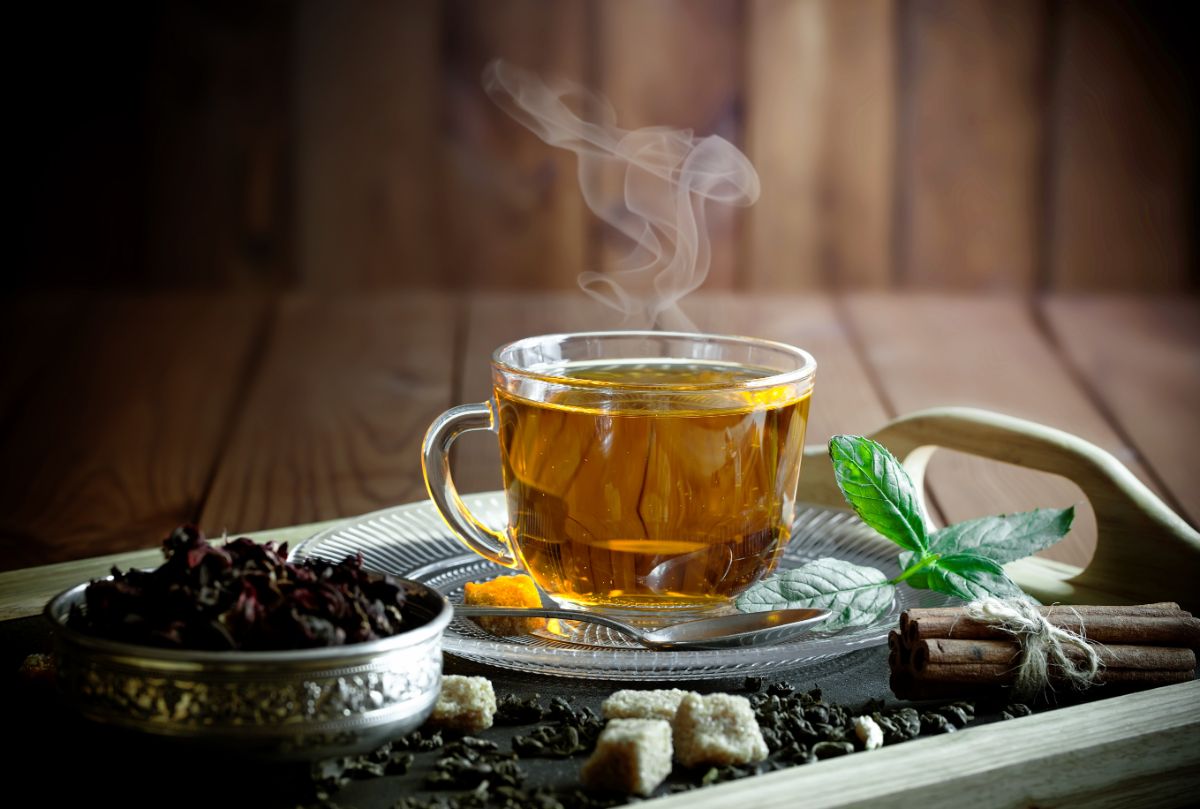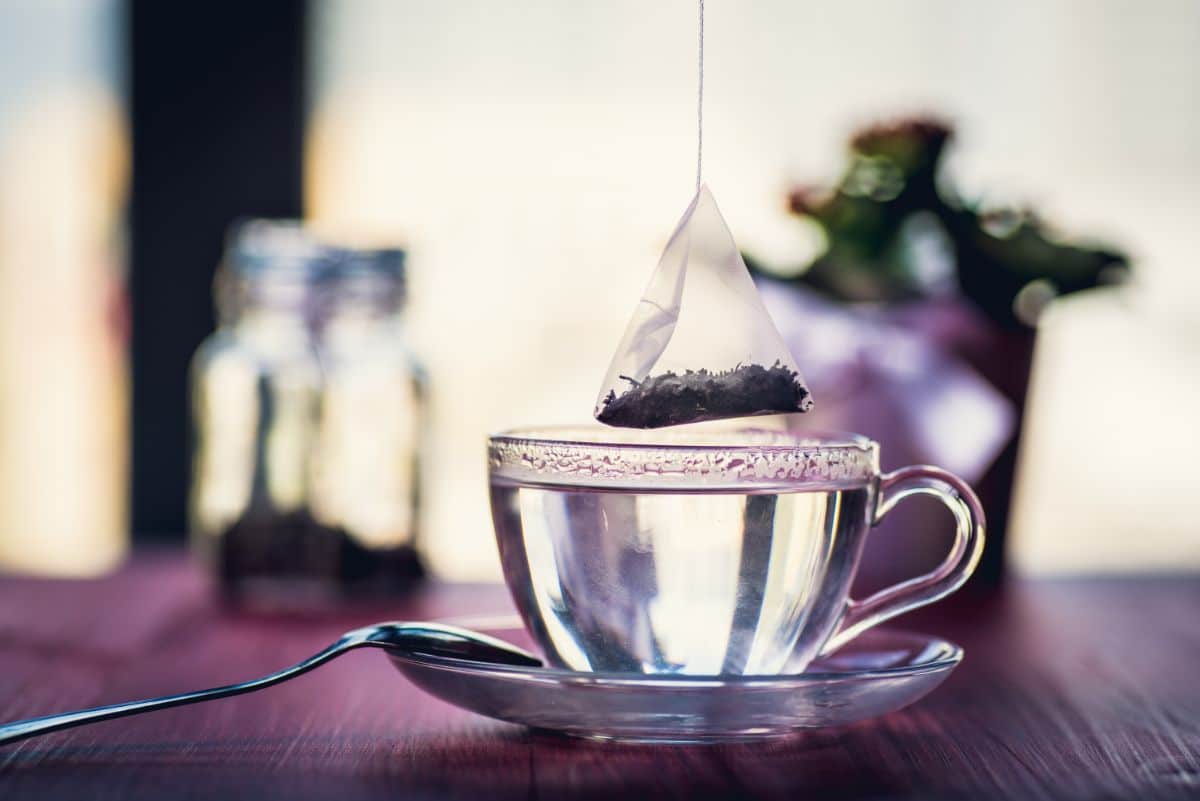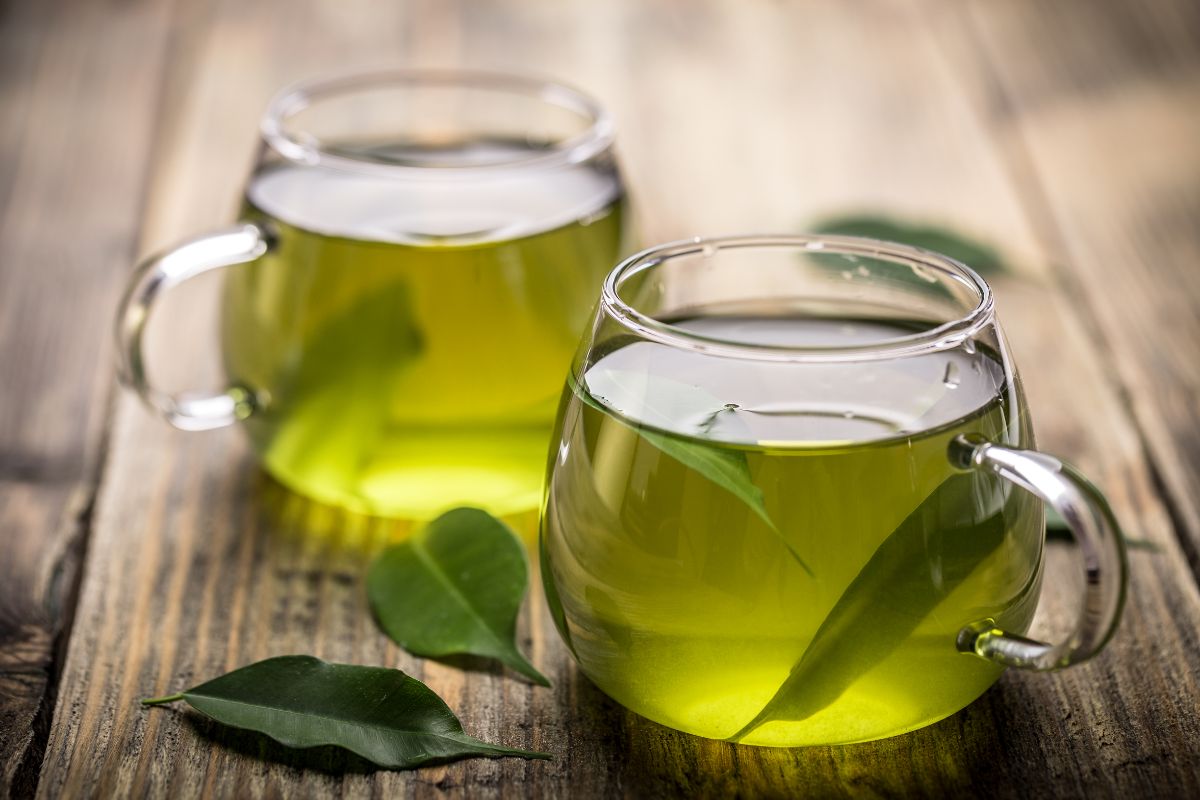
Yes, you can microwave water for tea in a microwave-safe cup or mug. However, the jury is out on whether it’s the best way to heat up water and brew your tea. Some food experts say microwaving is the better way to brew your tea and makes it healthier for you. Others say it’s only appropriate for certain types like green tea.
The concerns about microwaving water for tea come from temperature and safety. Some experts cite that various tea flavors require different temperatures to get the best taste. Others indicate that microwaves do not heat water evenly. Plus, there are several safety issues like burns and fires.
But as someone who has successfully microwaved water for tea multiple times, I agree that it’s acceptable and safe. Let’s examine the arguments for and against microwaving water for tea.
Jump to:
Why Microwaving Water for Tea Might Not Be the Best Idea

It’s not just hot water that’s necessary for brewing a refreshing cup of tea. That hot water needs to be at ideal temperatures. Green tea requires to lowest temperatures at 176 degrees Fahrenheit, whereas 210 degrees Fahrenheit is best for herbal teas.
But when you heat the water in a tea kettle on a stove, it usually gets up to 212 degrees Fahrenheit. While that may be close to what herbal tea varieties need, it’s way off for green tea. So, your choice is to let the water from the kettle cool down to 176 degrees and check its temperature with a thermometer.
A microwave will heat the water, but you won’t know how hot it is unless you take the temperature with a thermometer. Some people also say the water in the cup won’t be the same everywhere. You can let the microwave heat up the water until it visibly boils, but then you lose some of the water as it spills over.
Does Tea Taste Different From Microwaved Water?
Those opposed to microwaving water for tea also discuss problems with taste. When water is too hot for your tea type, it can worsen your tea taste. You might notice the flavor’s bitter or off. That is unless you’re microwaving water for green tea.
Most people agree that you won’t notice much flavor difference when you brew green tea with microwaved water. I would have to agree with this stance, as I mostly microwave my water for green tea. However, I’ve also used microwaved water for herbal green tea varieties. And I have not noticed any difference in taste or quality.
Safety Issues

When a microwave heats the water, it also heats the mug or container the water is in. The cup or container could catch fire if it’s not microwave-safe. This can damage the microwave, the cup or container, and the building. It depends on whether you notice the fire in time, turn off the microwave, and safely put out the flames.
Also, because the mug or container heats up, it’s not safe to remove it from the microwave with your bare hands. You could potentially burn yourself from the heat or spill more of the boiling hot water on yourself as you remove the container. However, you can use an oven mitt or warmer to prevent these.
Why Some Advocate for Microwaving Water for Tea
A food scientist found that microwaving water and a tea bag together activates 80% of its ingredients. These include caffeine, antioxidants, and amino acids. It’s the antioxidants and amino acids that can help decrease your chance of developing health conditions like diabetes and hypertension.
This food scientist also found that brewing tea in the microwave produces a better taste. So, this contradicts other experts’ information. Since I have only ever boiled water for tea in a microwave and steeped the tea bag afterward, I cannot offer any additional insight into these claims.
That being said, there is a specific method to follow. The food scientist that carried out this research states to start with a microwave-safe mug. Then, fill it with water and place the tea bag in the water. After that, microwave the mug and a tea bag for 30 seconds, but leave the power setting to 50%. In other words, don’t put the microwave on high or full blast.
After 30 seconds, let the mug cool off in the microwave for about a minute. I would say it’s best to use an oven mitt or warmer to remove the mug. But, from my perspective, there is still a risk of the mug being too hot for your skin.
Can You Microwave Water Instead of Boiling It?

Water should reach the boiling point to brew a tea bag. You can safely microwave water to the boiling point if you follow certain precautions. Those are as follows:
- Use a microwave-safe container. Do not use glass, metal, or anything with flammable materials.
- Know your power settings. Some microwaves and settings will take longer to boil water than others. Try to use the least amount of power possible.
- Use tap water instead of bottled or distilled water.
- Use an oven mitt or warmer to remove the mug or container from the microwave.
- Remove mugs slowly and steadily if using an over-the-range microwave.
- Don’t fill the water to the top of the mug, especially when using an over-the-range microwave.
Final Thoughts
Yes, you can microwave water for tea. Because there are mixed thoughts about whether it’s the best way to brew your tea, I say go for it. I’m someone who does not own a kettle and only boils water in the microwave for tea. So far, I’ve done this safely and made delicious cup after cup of hot tea.
That said, you should take some precautions before you do the same. First and foremost, make sure the cup or mug you’re using is safe for the microwave. Next, have an oven mitt or warmer on hand to remove your mug. And be sure to prevent spills by carefully removing the mug from the microwave.




